Top 5 Dog Breeds For Home And Family Protection

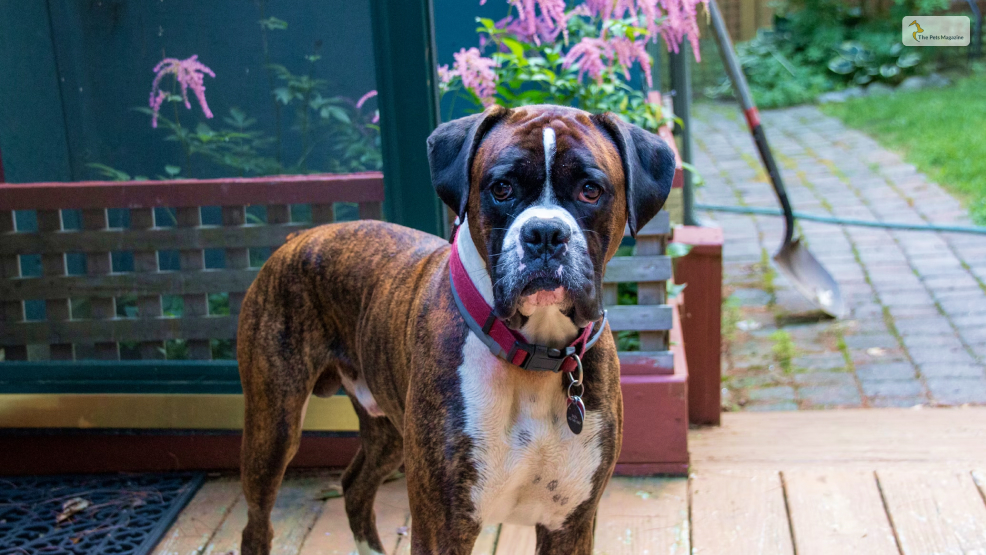
For many people, the family dog serves not only as a beloved companion but also as an additional measure of safety and security.
Dogs have keen senses, and their loyalty and protective instincts make them excellent guardians. The right breed of dog can provide an invaluable sense of security. It is important to caveat that every dog needs the right socialization and training, especially when the breed can be aggressive.
There are a number of breeds known for their protective instincts. Each of these breeds has a unique set of traits that contribute to their effectiveness as a protector, including things like physical strength and intelligence, as well as inherent loyalty and vigilance.
Top 5 Guard Dog Breeds
When choosing a breed, it’s crucial to consider not only their guarding capabilities but also their compatibility with your lifestyle and family dynamics. What follows are 5 of the top dog breeds for home and family protection.
1. Cane Corso
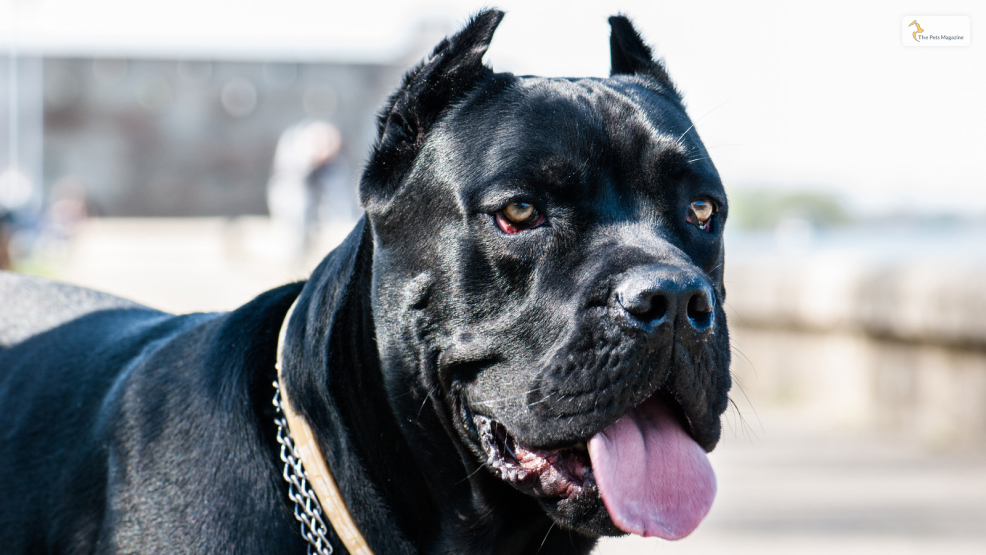
Historically revered for its protective instincts, the Cane Corso, an Italian breed, is an absolute epitome of a guard dog. These dogs are inherently loyal and incredibly perceptive, capable of sensing threats and reacting with impressive speed and decisiveness. Known for their commanding size, Cane Corsos have an imposing presence that alone can deter potential intruders. Despite their intimidating stature, they are notably affectionate with their families, which contributes to their unwavering devotion to their owner’s safety.
The Cane Corso requires an owner who can provide consistent and firm training, as they have a strong will and can become dominant if not properly managed. Their high energy and strength make them excellent protection dogs but also necessitate regular exercise and mental stimulation. Socialization from an early age is crucial for a Cane Corso to develop well-rounded protective instincts rather than unnecessary aggression. Their protective nature paired with steadfast loyalty makes the Cane Corso an ideal protector for home and family.
2. German Shepherd
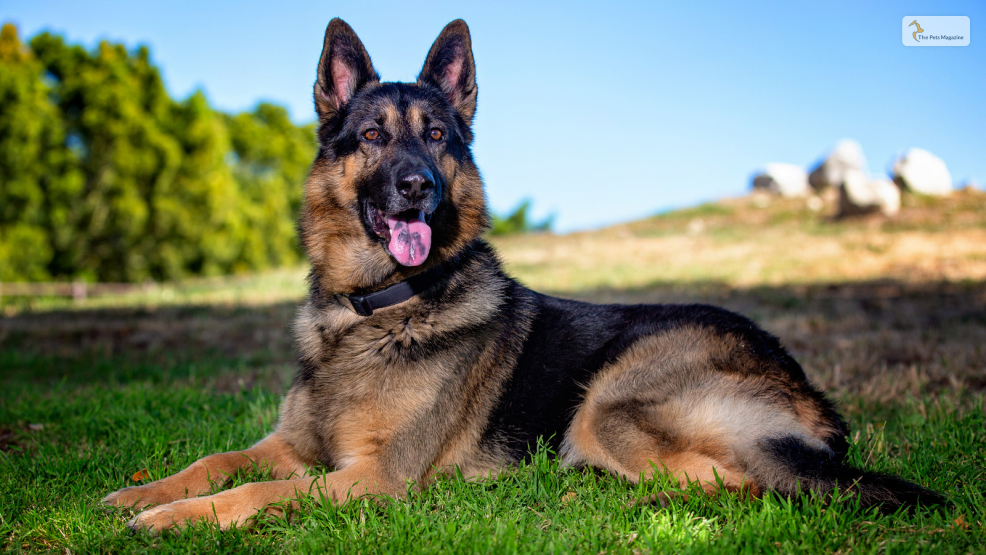
Most often associated with law enforcement and military roles, as well as jobs as service dogs, the German Shepherd is a breed known for its intelligence and courage. Well-trained German Shepherds excel in various tasks, but they are particularly good at protecting their families. They are naturally wary of strangers and have a keen sense of alertness that makes them effective watchdogs. Their protective nature extends to all the people they perceive as their pack.
The strong instinct to work and aptitude for learning German Shepherds have made them highly trainable. That said, training a German Shepherd does require dedication and patience due to their energetic and intelligent nature. In the process, you’ll form a strong bond with your dog. Make sure to socialize them early so as to temper their natural suspicion towards strangers, ensuring they become protective without being unnecessarily aggressive.
3. Rottweiler
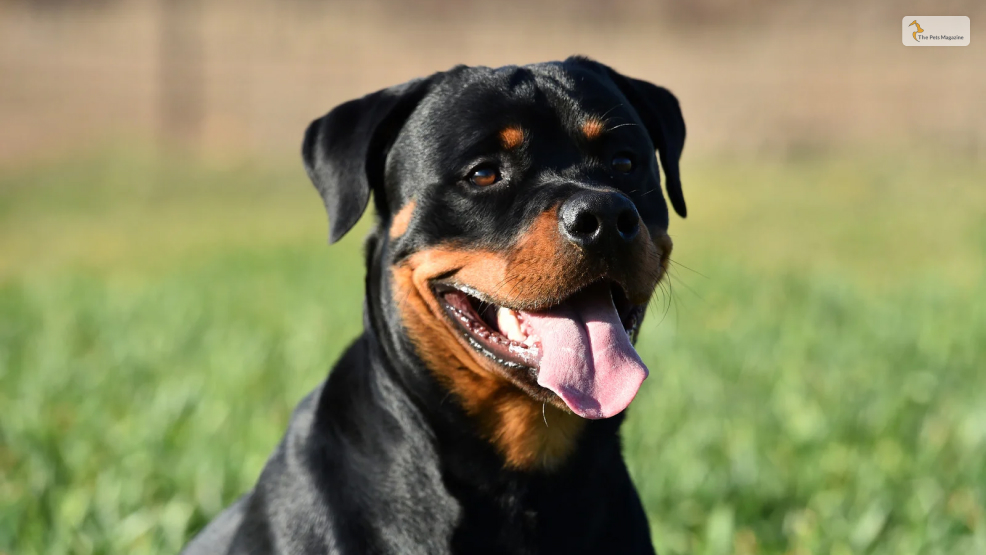
Rottweilers are powerful dogs with a history dating back to the Roman Empire, where they were used to herd livestock and pull carts. Their strength and endurance make them formidable protectors, and their intelligence and willingness to work enhance their effectiveness in this role. They are naturally protective and can be aloof with strangers but are typically calm and confident rather than aggressive.
While Rottweilers can be loving family pets, they need experienced handlers who can provide consistent training and socialization from a young age. Their strong instinct to protect can become problematic if not properly channeled. With the right guidance, Rottweilers can be excellent protectors, capable of distinguishing between benign and threatening situations. They also form deep bonds with their families, further strengthening their protective instinct.
4. Doberman Pinscher
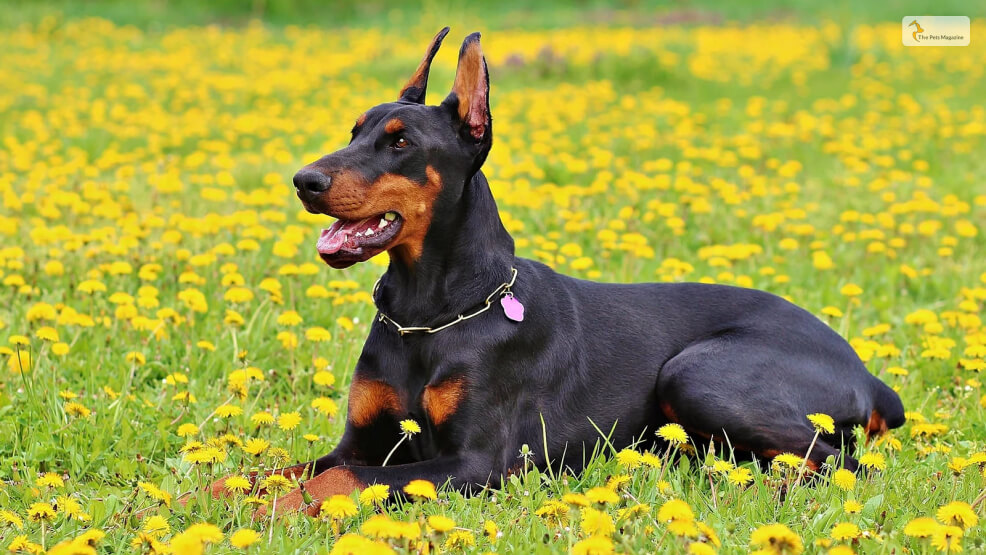
The Doberman Pinscher, or simply Doberman, is a breed renowned for its protective qualities. Dobermans were originally bred by a German tax collector for personal protection, which is a testament to their protective instincts. They are highly intelligent, quick learners, and possess a robust physique, making them exceptional guard dogs.
Despite their fierce reputation, Dobermans are typically friendly and affectionate with their families. They are highly trainable, but their intelligence and energy mean they require plenty of mental and physical stimulation. Early and consistent training and socialization are key to curbing any potential aggressive behavior and nurturing their protective instinct. If properly trained and socialized, a Doberman can be a vigilant protector and a loving family pet.
5. Boxer
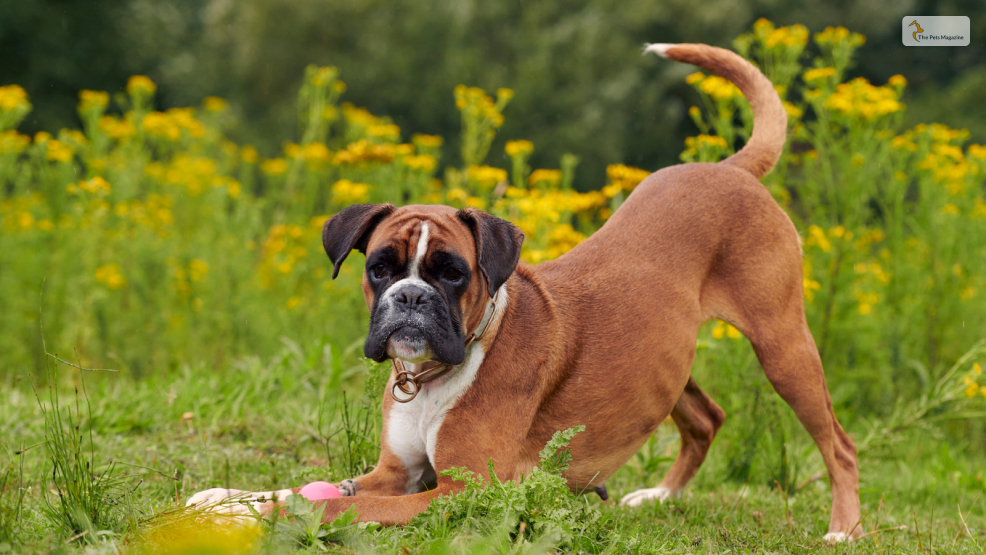
Boxers, while perhaps less traditionally associated with protection than the other breeds on this list, have qualities that make them excellent family and home protectors. They were originally bred to be hunting companions, which required strength, speed, and a keen sense of alertness – qualities that serve them well in protection roles. They are courageous and protective by nature, with a strong instinct to protect their families.
While they are energetic and playful, which can make them excellent companions for children, this energy also requires proper management. Boxers need plenty of exercise and mental stimulation, as well as early socialization and consistent training. They are highly trainable and intelligent, and while they can be wary of strangers, they are typically not aggressive without cause. With the right training, a Boxer can be a vigilant and affectionate protector of both home and family.
How Can I Train My Dog to Guard the House at Night?
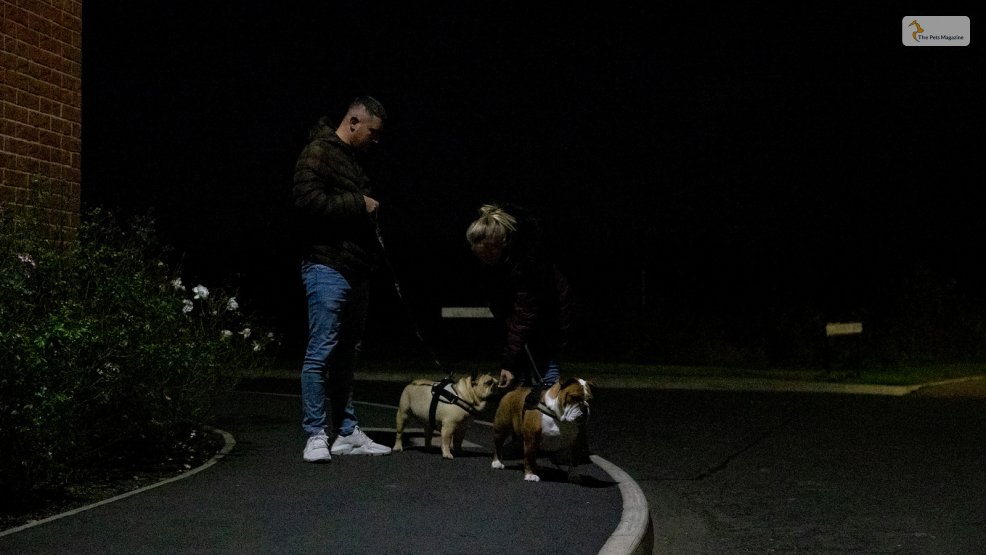
Training your dog to guard the house at night involves several steps to ensure they are both effective and safe. Here are some key steps to follow:
- Basic Obedience Training: Start with basic commands like sit, stay, come, and down. Your dog needs to be well-behaved and responsive to your commands before moving on to more advanced training.
- Teach Barking on Command: Train your dog to bark on command and to stop barking when told. This helps control when your dog barks and ensures they don’t bark unnecessarily.
- Boundary Training: Walk your dog around the perimeter of your house regularly. This helps them understand their territory and what they are supposed to protect.
- Socialization: Expose your dog to different people, environments, and situations. A well-socialized dog is less likely to be fearful or aggressive without reason.
- Controlled Exposure to Strangers: Gradually introduce your dog to strangers in a controlled manner. Have a friend or family member act as a stranger and approach the house. Reward your dog for barking and alerting you, then command them to stop and reward them again.
- Nighttime Routine: Establish a nighttime routine where your dog patrols the house or yard. Make sure they have a comfortable place to rest but can still be alert to any unusual activity.
- Positive Reinforcement: Always use positive reinforcement techniques. Reward your dog with treats, praise, or playtime when they perform the desired behavior¹.
- Professional Training: If you’re unsure or need additional help, consider hiring a professional dog trainer who specializes in guard dog training⁴.
Remember, the goal is to have a dog that can alert you to potential threats without being overly aggressive. Consistency and patience are key in training your dog effectively.
Final Thoughts
Choosing the right breed for home and family protection requires you to consider a number of various factors. From the dog’s inherent protective instincts to its temperament and training needs, each aspect plays a critical role in ensuring the breed you choose is a good fit for your home and family dynamics. However, it’s important to remember that a dog’s individual temperament, training, and socialization experiences significantly impact its behavior and suitability as a protection dog.






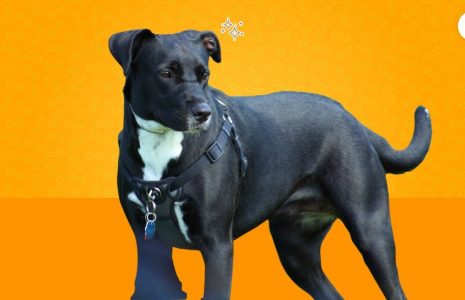
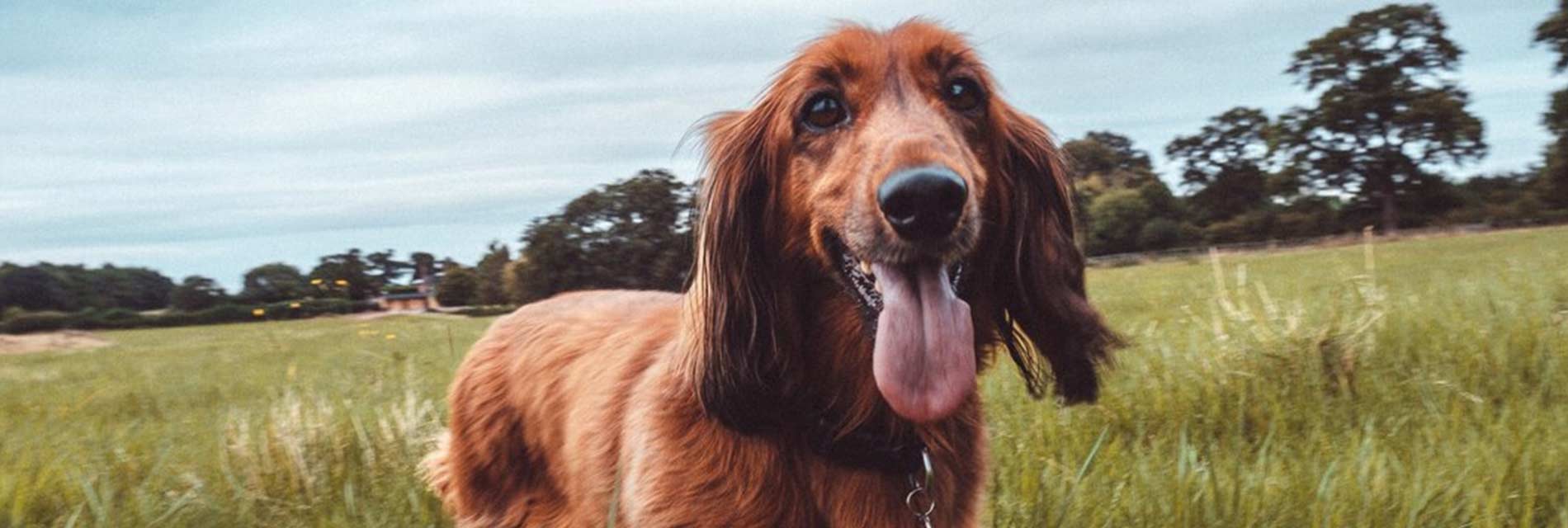

Leave A Comment